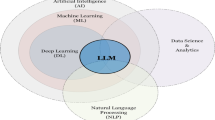Abstract
In European competition law, consumer protection agencies and competition authorities play a crucial role in ensuring fair competition. When a violation is identified by these institutions, they typically obtain a cease-and-desist declaration to ensure compliance with applicable laws. However, the manual verification of compliance is a time-consuming task, which poses a risk of companies continuing to engage in unlawful practices to the detriment of consumers. We propose a technology-enhanced solution to address this issue. Artificial Intelligence emerges as a transformative solution and Large Language Models now provide the potential for automation, replacing the need for manual completion of such tedious compliance checks. In our project KIVEDU, we aim to design an AI-based system that automates the enforcement of consumer rights. In this article, we present an overview of the current state of research, the planned project, the challenges we expect to encounter, and our initial results as well as planned next steps. With this work, our goal is to contribute to the enforcement of European consumer protection law, foster fair competition, and strengthen consumer rights.
Access this chapter
Tax calculation will be finalised at checkout
Purchases are for personal use only
Similar content being viewed by others
Notes
- 1.
The project website can be accessed under https://kivedu-projekt.de.
References
Aleph Alpha: Luminous (2023). https://www.aleph-alpha.com/luminous
Anthropic: Introducing Claude (Mar 2023). https://www.anthropic.com/index/introducing-claude
Biderman, S., et al.: Pythia: A Suite for Analyzing Large Language Models Across Training and Scaling (May 2023). https://doi.org/10.48550/arXiv.2304.01373
BigScience Workshop: BLOOM: A 176B-Parameter Open-Access Multilingual Language Model (Jun 2023). https://doi.org/10.48550/arXiv.2211.05100
Braun, D., Matthes, F.: NLP for Consumer protection: battling illegal clauses in german terms and conditions in online shopping. In: Proceedings of the 1st Workshop on NLP for Positive Impact. Association for Computational Linguistics, Online (Aug 2021). https://doi.org/10.18653/v1/2021.nlp4posimpact-1.10
Braun, D., Scepankova, E., Holl, P., Matthes, F.: Consumer protection in the digital era: the potential of customer-centered LegalTech. In: David, K., Geihs, K., Lange, M., Stumme, G. (eds.) INFORMATIK 2019: 50 Jahre Gesellschaft für Informatik - Informatik für Gesellschaft, pp. 407–420. Gesellschaft für Informatik e.V., Bonn (2019). https://doi.org/10.18420/inf2019_58
Chakrabarti, D., et al.: Use of artificial intelligence to analyse risk in legal documents for a better decision support. In: TENCON 2018–2018 IEEE Region 10 Conference, pp. 683–688. IEEE, Jeju, Korea (South) (Oct 2018). https://doi.org/10.1109/TENCON.2018.8650382
Christiano, P., Leike, J., Brown, T.B., Martic, M., Legg, S., Amodei, D.: Deep reinforcement learning from human preferences (Feb 2023). https://doi.org/10.48550/arXiv.1706.03741
Contissa, G., et al.: Claudette meets GDPR: automating the evaluation of privacy policies using. Artif. Intell. (2018). https://doi.org/10.2139/ssrn.3208596
Databricks: Free Dolly: Introducing the World’s First Truly Open Instruction-Tuned LLM (Apr 2023). https://www.databricks.com/blog/2023/04/12/dolly-first-open-commercially-viable-instruction-tuned-llm
Devlin, J., Chang, M.W., Lee, K., Toutanova, K.: BERT: Pre-training of Deep Bidirectional Transformers for Language Understanding (May 2019). https://doi.org/10.48550/arXiv.1810.04805
European Commission: 2016/0148 (COD) Cooperation between national authorities responsible for the enforcement of consumer protection laws (May 2016). https://eur-lex.europa.eu/legal-content/EN/TXT/?uri=celex:52016PC0283
Juranek, S., Otneim, H.: Using machine learning to predict patent lawsuits (2021). https://doi.org/10.2139/ssrn.3871701
Kasneci, E., et al.: ChatGPT for good? on opportunities and challenges of large language models for education. Learn. Individ. Differ. 103, 102274 (2023). https://doi.org/10.1016/j.lindif.2023.102274
Kroschwald, S.: Nutzer-, kontext- und situationsbedingte Vulnerabilität in digitalen Gesellschaften: Schutz, Selbstbestimmung und Teilhabe by Design vor dem Hintergrund des Art. 25 DSGVO und dem KI-Verordnungsentwurf. Zeitschrift für Digitalisierung und Recht (1), 1–22 (2023)
Köpf, A., et al.: OpenAssistant Conversations - Democratizing Large Language Model Alignment (Apr 2023). https://doi.org/10.48550/arXiv.2304.07327
Lippi, M., et al.: Automated detection of unfair clauses in online consumer contracts. In: Legal Knowledge and Information Systems, pp. 145–154. IOS Press (2017). https://doi.org/10.3233/978-1-61499-838-9-145
Lippi, M., et al.: CLAUDETTE: an automated detector of potentially unfair clauses in online terms of service. Artificial Intell. Law 27(2), 117–139 (2019). https://doi.org/10.1007/s10506-019-09243-2
Liu, Q., Wu, H., Ye, Y., Zhao, H., Liu, C., Du, D.: Patent litigation prediction: a convolutional tensor factorization approach. In: International Joint Conference on Artificial Intelligence (2018). https://doi.org/10.24963/ijcai.2018/701
MosaicML NLP Team: Introducing MPT-7B: A New Standard for Open-Source, Commercially Usable LLMs (2023). www.mosaicml.com/blog/mpt-7b
OpenAI: Introducing ChatGPT (Nov 2022). https://openai.com/blog/chatgpt
OpenAI: GPT-4 Technical Report (Mar 2023). https://doi.org/10.48550/arXiv.2303.08774
Penedo, G., et al.: The RefinedWeb Dataset for Falcon LLM: Outperforming Curated Corpora with Web Data, and Web Data Only (Jun 2023)
Rösch, D., Schuster, T., Waidelich, L., Alpers, S.: Privacy control patterns for compliant application of GDPR. In: AMCIS 2019 Proceedings (Jul 2019). https://aisel.aisnet.org/amcis2019/info_security_privacy/info_security_privacy/27
Stability AI: Stability AI Launches the First of its StableLM Suite of Language Models (Apr 2023). https://stability.ai/blog/stability-ai-launches-the-first-of-its-stablelm-suite-of-language-models
Stability AI: Stability AI releases StableVicuna, the AI World’s First Open Source RLHF LLM Chatbot (Apr 2023). https://stability.ai/blog/stablevicuna-open-source-rlhf-chatbot
Taori, R., et al.: Stanford Alpaca: An Instruction-following LLaMA model (2023). https://github.com/tatsu-lab/stanford_alpaca
Touvron, H., et al.: LLaMA: Open and Efficient Foundation Language Models (Feb 2023). https://doi.org/10.48550/arXiv.2302.13971
Trappey, C.V., Trappey, A.J.C., Liu, B.H.: Identify trademark legal case precedents - Using machine learning to enable semantic analysis of judgments. World Patent Information 62 (Sep 2020). https://doi.org/10.1016/j.wpi.2020.101980
Vásquez, S., Kroschwald, S.: Data-driven vehicles: Privacy by Design - Verantwortung zwischen Herstellern und Anbietern und das Principal-Agent-Problem. Zeitschrift für IT-Recht und Recht der Digitalisierung 4, 217–221 (2020)
Zhou, C., et al.: LIMA: Less Is More for Alignment (May 2023). https://doi.org/10.48550/arXiv.2305.11206
Author information
Authors and Affiliations
Corresponding author
Editor information
Editors and Affiliations
Rights and permissions
Copyright information
© 2023 The Author(s), under exclusive license to Springer Nature Switzerland AG
About this paper
Cite this paper
Waidelich, L., Lambert, M., Al-Washash, Z., Kroschwald, S., Schuster, T., Döring, N. (2023). Using Large Language Models for the Enforcement of Consumer Rights in Germany. In: Maślankowski, J., Marcinkowski, B., Rupino da Cunha, P. (eds) Digital Transformation. PLAIS EuroSymposium 2023. Lecture Notes in Business Information Processing, vol 495. Springer, Cham. https://doi.org/10.1007/978-3-031-43590-4_1
Download citation
DOI: https://doi.org/10.1007/978-3-031-43590-4_1
Published:
Publisher Name: Springer, Cham
Print ISBN: 978-3-031-43589-8
Online ISBN: 978-3-031-43590-4
eBook Packages: Computer ScienceComputer Science (R0)




